In an age where distractions are relentless and attention spans are constantly challenged, especially among those diagnosed with Attention-Deficit/Hyperactivity Disorder (ADHD), the search for effective, natural solutions has never been more urgent. While pharmaceutical treatments like Adderall and Ritalin have demonstrated clinical effectiveness, many individuals are seeking alternatives that support cognitive clarity without the side effects of stimulant medications. This pursuit has led to increased interest in herbal remedies—natural, plant-based ingredients that have been used for centuries in traditional medicine systems and are now being re-evaluated by modern science.
You may also like: Best Herb for ADHD and Focus Support: Natural Nootropics That Help Women and Men Stay Sharp
This article explores some of the best herbs for ADHD, providing a detailed, science-backed examination of how these botanicals may help enhance focus, support memory, and promote mental clarity. More importantly, it guides readers in using these herbs as complementary strategies that may function as a powerful memorization tool or help those wondering, “Can something help me memorize or stay focused without prescription meds?” Whether you are a student browsing for a reliable memorize website or an adult looking for ways to memorize sentences effectively for work or daily life, understanding the potential of herbal support is crucial.
Let’s delve into the evidence and experience behind the most promising herbs for attention, executive function, and cognitive support.
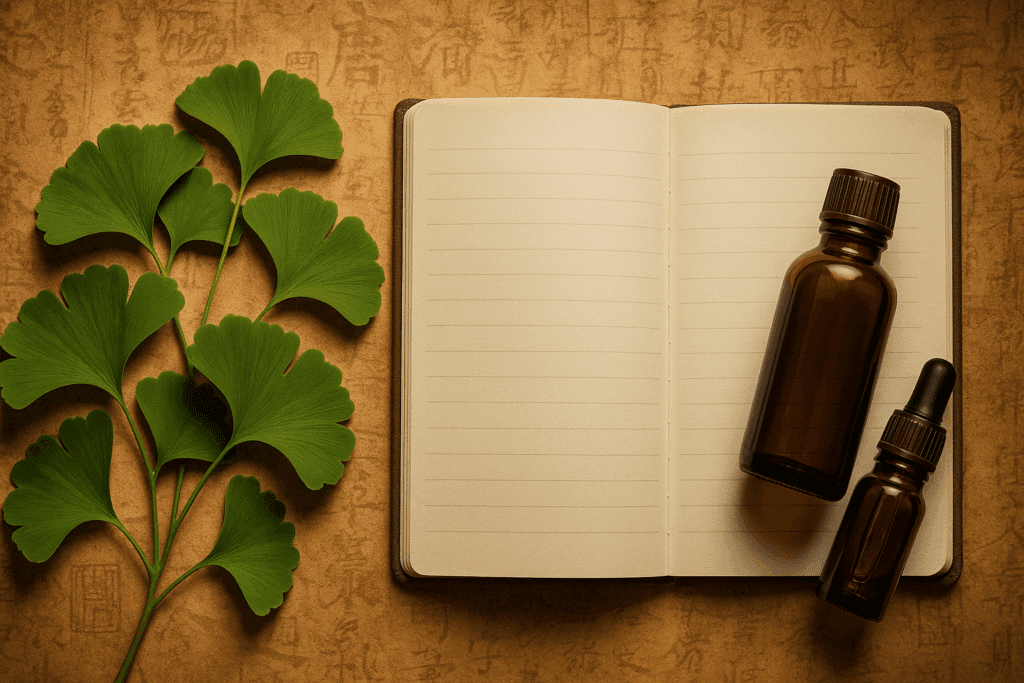
Ginkgo Biloba: Ancient Wisdom for Modern Focus
Ginkgo biloba has long been celebrated for its brain-boosting properties, especially in traditional Chinese medicine. This herb, derived from one of the oldest tree species on Earth, is rich in flavonoids and terpenoids, which are thought to enhance circulation and protect nerve cells from damage. What makes Ginkgo particularly relevant for ADHD is its potential to improve blood flow to the brain, enhance neurotransmitter activity, and reduce oxidative stress.
Scientific studies have shown that Ginkgo may improve working memory and executive function, which are often impaired in individuals with ADHD. One randomized control trial found that children with ADHD who took Ginkgo extract experienced improvements in attention and task accuracy. While more research is needed to define the optimal dosage and formulation, early evidence suggests that Ginkgo may support sustained attention in a natural way.
For those seeking a natural memorization tool or exploring new ways to help me memorize dense information, Ginkgo’s ability to increase blood flow to the hippocampus—where memory consolidation occurs—can be highly beneficial. Integrating Ginkgo into a daily routine, under professional supervision, may provide noticeable enhancements in mental performance.
Moreover, for users navigating digital platforms that offer a memorize website or apps that aim to boost recall, the cognitive edge from Ginkgo could enhance user outcomes. It may also aid individuals trying to memorize sentence structures or key phrases under tight deadlines, a common challenge in both academic and professional settings.
Bacopa Monnieri: The Adaptogenic Ally for ADHD
Bacopa monnieri, often known as Brahmi in Ayurvedic tradition, is another potent herb that has gained attention for its cognitive-enhancing abilities. Known as an adaptogen, Bacopa helps the body resist stress while simultaneously improving mental performance. This dual-action benefit makes it an ideal candidate for those dealing with the hyperactivity, restlessness, and impulsivity common in ADHD.
Multiple studies support Bacopa’s role in improving attention span, memory recall, and learning rates. Its bacoside compounds are believed to enhance neuron communication by stimulating the growth of dendrites—the branching parts of nerve cells responsible for receiving signals. This structural benefit may directly support the brain’s ability to memorize sentences and process complex information.
In one double-blind placebo-controlled study involving schoolchildren, those who took Bacopa showed significant improvements in sentence repetition, logical memory, and paired-associate learning, supporting its role as a helpful memorization tool. Adults with ADHD-like symptoms may also benefit, especially when stress and anxiety contribute to cognitive overload.
For users engaged in digital learning tools—whether on a memorize website or through spaced repetition apps—Bacopa’s ability to help me memorize with greater retention could offer a meaningful advantage. Its adaptogenic properties also make it well-suited for people juggling multiple responsibilities, where cognitive performance must remain steady despite stress.
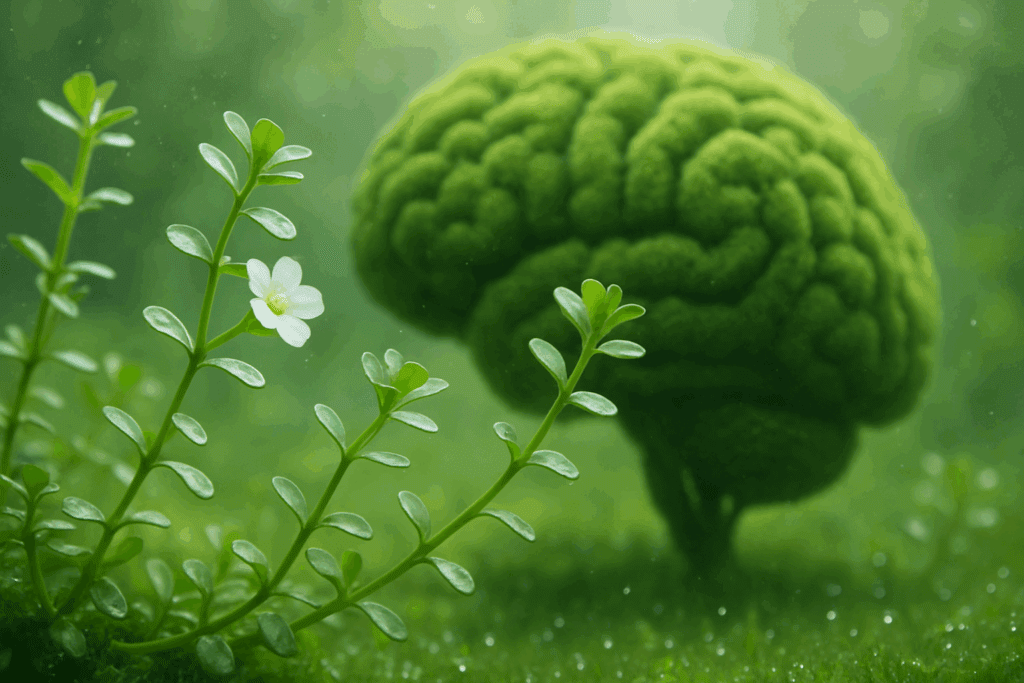
Rhodiola Rosea: The Brain’s Energy Booster
Rhodiola rosea is a powerful adaptogenic herb native to arctic regions of Europe and Asia. Traditionally used to combat fatigue and improve endurance, Rhodiola has recently gained attention for its cognitive benefits, particularly in areas related to mental energy, focus, and resilience.
This herb works primarily by modulating cortisol levels and enhancing mitochondrial energy production, which are both crucial in maintaining mental clarity during periods of stress. For individuals with ADHD, whose attention can wane rapidly in overstimulating or demanding environments, Rhodiola offers a stabilizing effect.
Clinical trials have shown Rhodiola’s potential in improving sustained attention, reducing mental fatigue, and enhancing the brain’s capacity to handle cognitive load. It’s particularly useful for students, professionals, and anyone using a memorize website to retain large volumes of information in a short time. Its energizing effects can help individuals maintain focus without the crash often associated with caffeine or stimulants.
When it comes to sentence memorization—such as memorizing key lines for a presentation, speech, or exam—Rhodiola’s mental endurance benefits can extend concentration spans, reducing the need for repetitive review. This herb may not only help me memorize faster but also with less mental fatigue, making it a valuable addition to any cognitive support regimen.
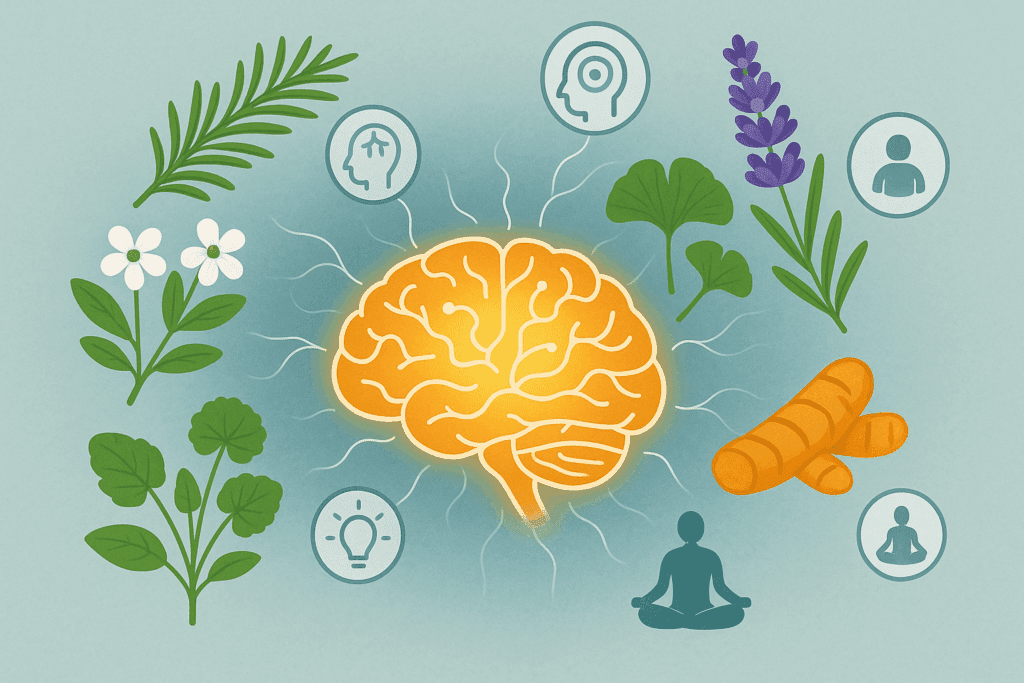
Gotu Kola: The Cognitive Herb for Calm Focus
Gotu Kola (Centella asiatica) is another treasured herb in Ayurvedic and traditional Chinese medicine, used historically to support brain function, wound healing, and longevity. Its impact on cognition is particularly promising for those with ADHD due to its ability to promote calm focus without sedation.
Gotu Kola works by supporting circulation, reducing anxiety, and enhancing brain-derived neurotrophic factor (BDNF), a key protein involved in neuroplasticity and learning. These mechanisms are critical in supporting memory formation and focus—both of which are often impaired in ADHD.
Studies in both animals and humans suggest that Gotu Kola may improve working memory and attention, especially when taken over several weeks. It’s an especially appealing herb for individuals looking for a natural way to help me memorize complex tasks, such as step-by-step procedures or longer sentence sequences.
When integrated with digital learning platforms or when using a memorize website for structured content review, Gotu Kola may enhance user performance by promoting a calm and balanced cognitive state. For those dealing with hyperactivity or racing thoughts, it provides a grounded mental space that facilitates deeper learning and memory encoding.

Panax Ginseng: The Executive Function Enhancer
Panax ginseng, often referred to as Asian ginseng, has a rich history of use as a general tonic for energy, vitality, and mental performance. Modern research is beginning to affirm what traditional medicine has long claimed—that ginseng supports executive function, attention, and memory.
This herb appears to exert its effects by modulating neurotransmitter activity, particularly dopamine and acetylcholine, both of which are central to focus and learning. For those with ADHD, who often experience dysregulation in these pathways, Panax ginseng may provide a helpful recalibration.
In cognitive testing scenarios, Panax ginseng has demonstrated improvements in reaction time, working memory, and sustained attention. It may be particularly beneficial when users are engaged in repetitive memorization tasks, such as using a memorize website to internalize academic material, language vocabulary, or technical procedures. For these users, Panax ginseng can help me memorize efficiently by enhancing the speed and accuracy of recall.
Moreover, Panax ginseng’s stimulating but non-jittery nature makes it a compelling alternative to caffeine-based focus aids. It provides cognitive support without triggering the anxiety or crashes associated with overstimulation—a valuable trait for ADHD populations.
Lion’s Mane Mushroom: The Neurogenesis Nutrient
Lion’s Mane mushroom (Hericium erinaceus) is increasingly recognized in the nootropics and wellness communities for its profound impact on neurogenesis—the process by which the brain creates new neurons. For individuals with ADHD, where disrupted brain connectivity and impaired memory are common, Lion’s Mane presents a novel avenue for support.
The active compounds in Lion’s Mane, known as hericenones and erinacines, stimulate the production of nerve growth factor (NGF), a protein essential for the growth, maintenance, and survival of neurons. This activity may explain the mushroom’s observed effects on improved memory, focus, and mood stability.
Human studies, while still limited, show promising results. Participants taking Lion’s Mane extracts have demonstrated significant improvements in cognitive function, particularly in short-term memory and focus under distraction. This makes it a valuable ally for students and professionals alike who are using a memorize website or memory enhancement strategy for high-performance learning.
Those asking, “Can a supplement help me memorize technical sentences, instructions, or detailed data points?” may find Lion’s Mane to be one of the most effective options available today. Its neuroregenerative effects could also support long-term brain health, making it more than just a quick fix—it may be an investment in cognitive longevity.
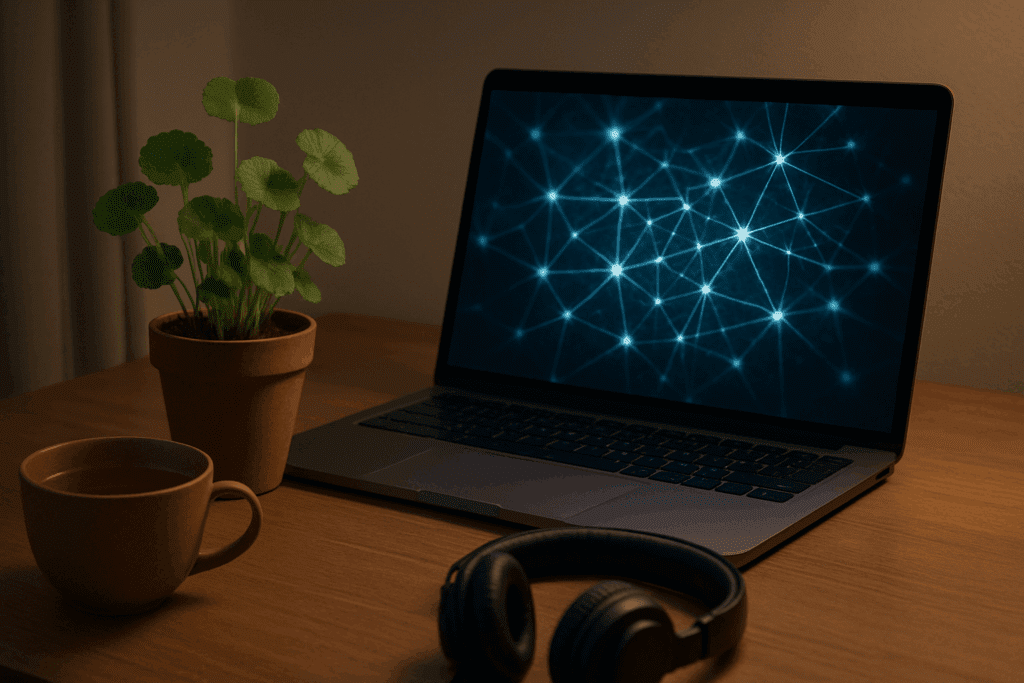
Frequently Asked Questions (FAQ): Best Herb for ADHD and Cognitive Support
1. Can herbs really compete with pharmaceutical ADHD treatments in terms of effectiveness?
While pharmaceutical treatments for ADHD like methylphenidate and amphetamines offer fast and clinically validated symptom relief, many herbs function through subtler, long-term neuroregulatory mechanisms. Rather than forcing neurotransmitter spikes, herbs like Bacopa monnieri and Lion’s Mane mushroom support neuroplasticity, which can gradually improve executive functioning. These herbs are also favored for their favorable safety profiles and their ability to serve as a memorization tool for individuals who prefer non-stimulant options. Unlike conventional medications, herbs often enhance focus and help me memorize complex ideas without causing rebound crashes or emotional flattening. For users engaged with platforms like a memorize website, herbs provide a steady, sustainable boost to learning outcomes.
2. How long does it take to see results from herbal remedies for ADHD?
Unlike stimulant medications that act within hours, herbs typically require consistent use over weeks or even months to manifest their full benefits. Bacopa monnieri, for example, shows significant results only after 8 to 12 weeks of daily intake. This delayed response correlates with the way herbs work—by enhancing brain structure and function gradually rather than simply manipulating neurotransmitter levels. During this period, herbs can act as an internal memorization tool that progressively improves cognitive clarity. Individuals who frequently visit a memorize website or rely on sentence retention exercises often report improved cognitive endurance over time when supported by these botanicals.
3. Are there specific herbs better suited for visual learners versus auditory learners with ADHD?
Interestingly, some herbs may align better with different learning modalities. Visual learners may benefit more from Lion’s Mane mushroom due to its enhancement of visual memory pathways via increased nerve growth factor (NGF) expression. On the other hand, auditory learners might find that Gotu Kola improves listening comprehension and auditory processing, especially under conditions of anxiety or distraction. Choosing the right herb may depend on how you process and memorize sentence-based material, and understanding this can guide a more personalized approach to cognitive support. When pairing herbal remedies with a memorize website designed for your learning style, the synergy may become even more impactful. These nuanced herb-learner relationships provide fresh insight for ADHD support planning.
4. Can herbal supplements enhance digital learning experiences or app-based memory tools?
Absolutely. Herbal cognitive enhancers are increasingly being used alongside digital learning tools and educational platforms. For example, Panax ginseng has been observed to increase mental stamina, which can improve outcomes for users who rely on a memorize website that utilizes spaced repetition. Similarly, Ginkgo biloba can sharpen working memory, helping users quickly internalize flashcard content and memorize sentence structures more efficiently. When herbal supplementation is strategically timed with learning sessions, it can reinforce the platform’s memorization tool features and accelerate skill acquisition. This integrative strategy reflects an evolving model of brain optimization that pairs ancient botanical science with modern technology.
5. What are some overlooked lifestyle factors that can enhance the effectiveness of these herbs for ADHD?
Dietary consistency, sleep hygiene, and digital detox intervals all play critical roles in maximizing the cognitive benefits of herbs. For example, a nutrient-dense diet with omega-3 fatty acids can amplify the neuroprotective effects of Rhodiola rosea and Bacopa. Consistent sleep cycles support the memory-consolidation process, which makes any memorization tool or memorize website more effective when paired with adaptogenic herbs. Practicing intermittent disconnection from screens helps recalibrate attention systems, further boosting herbal efficacy in those with ADHD. Altogether, aligning these lifestyle adjustments with herbal protocols offers a multidimensional way to help me memorize better and retain complex material more effectively.
6. Can herbs be used specifically for sentence-level memory challenges common in ADHD?
Yes, sentence-level recall—which is often impaired in ADHD due to working memory deficits—can be specifically addressed with targeted herbal protocols. Sage (Salvia officinalis) and Bacopa have shown potential in enhancing sequential verbal memory, which is crucial when attempting to memorize sentence structures verbatim. Individuals preparing for speeches, foreign language exams, or presentation scripts have reported success using herbs as a natural memorization tool. These effects can be amplified when combined with audio-visual tools on a memorize website that offers sentence-based training. This specialized focus on verbal sequence retention marks an innovative niche where herbs can complement ADHD-specific cognitive deficits.
7. Are there potential future developments in herbal ADHD research?
Yes, researchers are actively exploring how combinations of herbs can offer synergistic benefits beyond individual usage. One emerging concept is polyherbal formulations tailored to subtypes of ADHD—such as inattentive vs. hyperactive-impulsive presentations. Innovations are also expected in delivery methods, including transdermal patches or nanocapsules, which could make herbs more bioavailable and consistent in effect. Another exciting area is AI-driven personalization, where data from a memorize website or digital platform is used to match users with the most effective herb for their learning profile. These advancements not only promise better support for sentence retention but also help me memorize in ways uniquely aligned to my neurological blueprint.
8. How do herbs interact with emotional regulation in ADHD, and can that affect learning?
Emotional dysregulation is a core component of ADHD that can sabotage learning efforts. Herbs like Gotu Kola and Rhodiola rosea act on the HPA (hypothalamic-pituitary-adrenal) axis, helping to moderate stress responses that often trigger distractibility or impulsive behavior. When emotional balance is improved, cognitive bandwidth is freed up, enhancing the brain’s ability to use a memorization tool or memorize website without becoming overwhelmed. A calmer mental state also improves the accuracy and fluency with which one can memorize sentence-based information. This intersection between emotional stability and memory acquisition underscores the holistic potential of herbs in addressing ADHD challenges.
9. Are there any populations or age groups for whom these herbs are particularly beneficial or risky?
While many herbs show promise across age groups, certain populations may benefit more cautiously. Children with ADHD, for instance, require pediatric-specific dosages and clinical oversight, especially with potent herbs like Panax ginseng. Older adults with ADHD symptoms or late-diagnosed cases may find particular value in Lion’s Mane or Ginkgo, as these not only help me memorize new content but also support long-term brain resilience. However, people with underlying conditions such as thyroid disorders, hypertension, or those taking anticoagulants should consult healthcare professionals before integrating these botanicals. Matching the herb to both cognitive needs and physiological safety parameters ensures both effectiveness and trustworthiness.
10. How do I measure the success of using herbs as part of my ADHD management plan?
Measuring success involves more than just tracking reduced distractibility—it also includes evaluating improvements in task completion, emotional regulation, and memory performance. Many users track their ability to memorize sentence patterns, complete learning modules on a memorize website, or use a memorization tool consistently without mental fatigue. Journaling progress, conducting self-assessments, and reviewing digital metrics from educational apps can all help quantify gains. It’s also wise to set specific, achievable goals like memorizing a set number of phrases or concepts weekly. By monitoring both subjective experiences and objective outcomes, users can more accurately determine how herbs help me memorize and manage ADHD symptoms holistically.
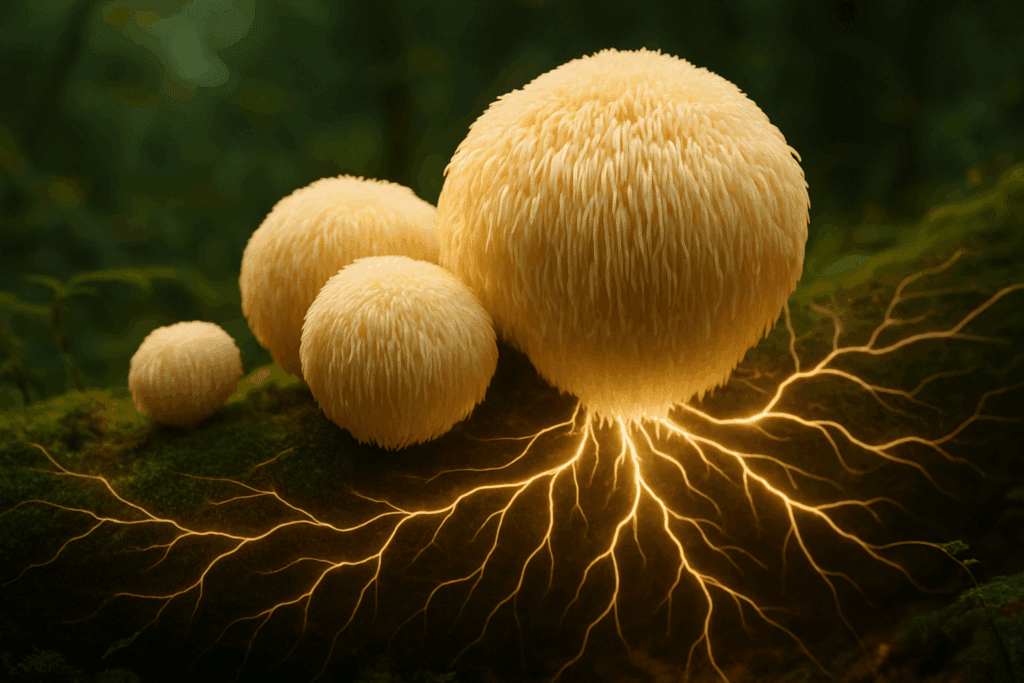
Sage (Salvia officinalis): The Aromatic Aid for Attention
Often overlooked as a mere culinary herb, Sage (Salvia officinalis) has quietly built a reputation in scientific circles as a potent cognitive enhancer. Its effects on memory, attention, and alertness are increasingly supported by clinical trials, particularly those evaluating short-term mental performance.
Sage contains compounds like rosmarinic acid and luteolin, which inhibit the breakdown of acetylcholine, a neurotransmitter vital for learning and memory. This mechanism is especially important in ADHD, where acetylcholine levels may be suboptimal, contributing to forgetfulness and attention lapses.
In placebo-controlled trials, even a single dose of Sage extract has been shown to significantly improve immediate word recall, sentence repetition, and attention span. These findings suggest that Sage could be highly effective when used as a memorization tool during study sessions or when preparing for speeches, interviews, or high-stakes meetings.
Incorporating Sage—whether through supplements or as a tea—can enhance the brain’s ability to help me memorize on the spot, especially when working through content on a memorize website. Its subtle stimulating effects also make it suitable for long-term use without the overstimulation risks of synthetic cognitive enhancers.


